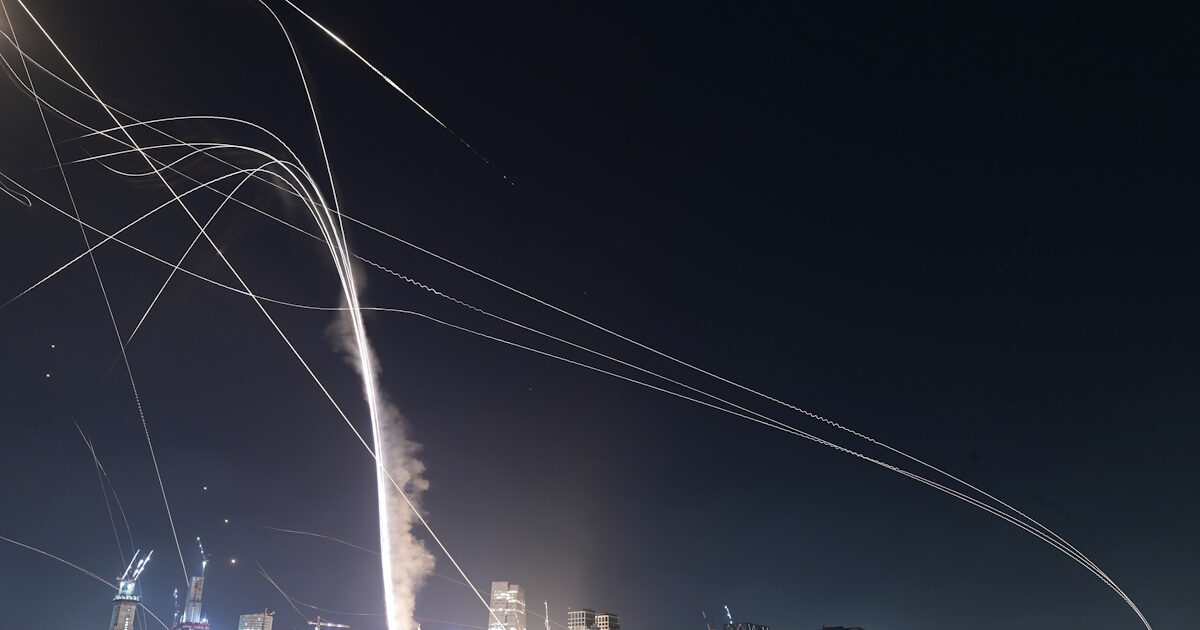At the same time that Israel and Iran carry out attacks on both sides are launched rockets and unmanned aircraft, another “war” is ongoing, with feverish diplomatic contacts between countries such as USARussia, China with the aim of “falling tones” on Middle East.
Israeli’s devastating air strikes in Iran, targeting energy infrastructure, radar, air defense systems and high -ranking military officials have forced Tehran to escalate tensions, threatening US and US military forces.
Against the risk of a nuclear war, leaders and leading diplomats from the US, Russia, but China today (14.06.2025) high -level contacts to send a “message” to Iran and Israel that the diplomatic solution is a one -way street.
In this context, Vladimir Putin phoned Donald Trump, with the two leaders chatting for about 50 minutes about the war in Ukraine and the hostilities between Iran and Israel.
The Russian president condemned Israeli attacks on Iranian territory and as the Kremlin pointed out “The two leaders did not rule out the possibility of returning to Iran’s nuclear program discussions” It is also recalled that Putin had proposed in Tel Aviv and Tehran to mediate to resolve the crisis between them.
‘Shipwreck’ in US -Iran talks
But, along with the telephone communication of the two leaders, developments around Iran’s nuclear program were running and not in a positive direction, as it became known that The next round of indirect negotiations between the US and Iran was canceledscheduled to take place tomorrow (15.06.2025) in Oman, the mediator.
A US official said earlier today that the US is “hoping” to continue negotiations with Iran.
Iran had accused the US earlier for complicity in Israel’s attacks, but Washington denied the charge and told Tehran at the UN Security Council that it would be “prudent” to negotiate for his nuclear program.
US President Donald Trump told Reuters that he and his team knew that the Israeli attacks would be carried out, but noting that they were still seeing that there was room for an agreement on Tehran’s nuclear program.
Beijing puts ‘back’ in Tehran
As expected, China did not stay “out” of rapid developments in the Middle East, with Chinese Foreign Minister Wang to communicate with his Iranian counterpart, Abbas Arakzi.
Beijing “supports Iran in protecting its national sovereignty, defending its legitimate rights and interests, and securing the security of its people,” the Chinese Foreign Ministry said in a statement.
He also accused Israel of “seriously violating (…) the basic rules governing international relations” and that “Israeli bombings in Iranian nuclear installations created a dangerous precedent, with potentially destructive consequences”.
“This aggression is pushing the region into a dangerous cycle of violence,” Iranian Foreign Minister Abbas Arakzi replied during a telephone conversation with his Chinese counterpart, Wang Y.
“Iran has responded and will strongly respond to the barbaric actions of the Zionist regime,” the head of Iranian diplomacy added, according to a statement from the Iranian Foreign Ministry.
China in Israel: ‘Your attitude is unacceptable’
Indeed, the Chinese Foreign Minister had a telephone conversation with his Israeli counterpart, Gideon Saar, in which he made it clear that Beijing “is clearly opposed to the violation of international law committed by Israel by force in Iran”.
However, he added that “the diplomatic means on the Iranian nuclear issue have not been exhausted and there is still hope for a peaceful solution” and that “violence cannot carry constant peace”.
Netanyahu’s phone call to Mitsotakis
Diplomatic “fever” also hit Greece, too, With Benjamin Netanyahu telephoning Kyriakos Mitsotakis and the Greek Prime Minister emphasizing in his Israeli counterpart the need to decline the tension in the Middle East.
Indeed, Kyriakos Mitsotakis acknowledged that Iran should not have a nuclear arsenal, however, he stressed that The solution lies in diplomacy and that the last one needs the area is a new ignition front.
The Greek prime minister emphatically emphasized the need for immediate truce in Gaza, release of hostages and a smooth flow of humanitarian aid.
Macron: Iran to return to the negotiations
French President Emmanuel Macron today asked Iranian counterpart Massoud Pezkian to “quickly return to the negotiating table” on the issue of Tehran’s nuclear program and called on not to target French nationals “in Iran and anywhere”.
In response, the Iranian president stressed that Tehran will not continue negotiations with the US on the Islamic Republic’s nuclear program as long as Israel continues its attacks.
“My first message was to demand the immediate release of our compatriots Cecil Coolers and Jacques Paris, who have been held hostages by the Iranian regime under unacceptable circumstances for more than three years,” the French president said in X, after the telephone contact.
“In the face of the great risk of destabilization for the whole area, I asked not to target any conditions (…) our nationals in Iran and the region. I also called for maximum restraint to avoid escalation, “Macron said.
“The Iranian nuclear issue is serious: it must be resolved through negotiations,” he noted, after calling for “resume dialogue” yesterday.
“I, therefore, called President Pescian to return to the negotiating table quickly to reach an agreement, the only possible way to relieve the situation,” Macron added.
“Iran will not accept irrational pressure demands and will not sit on the table of negotiations as long as the Zionist regime continues its attacks,” Pescian told his French counterpart, according to the Iranian presidency.
The new round of US-Iran talks on Tehran’s nuclear program, scheduled for tomorrow Sunday in Muscat, will not take place, Oman Foreign Minister Badr Albusidi announced earlier today.
